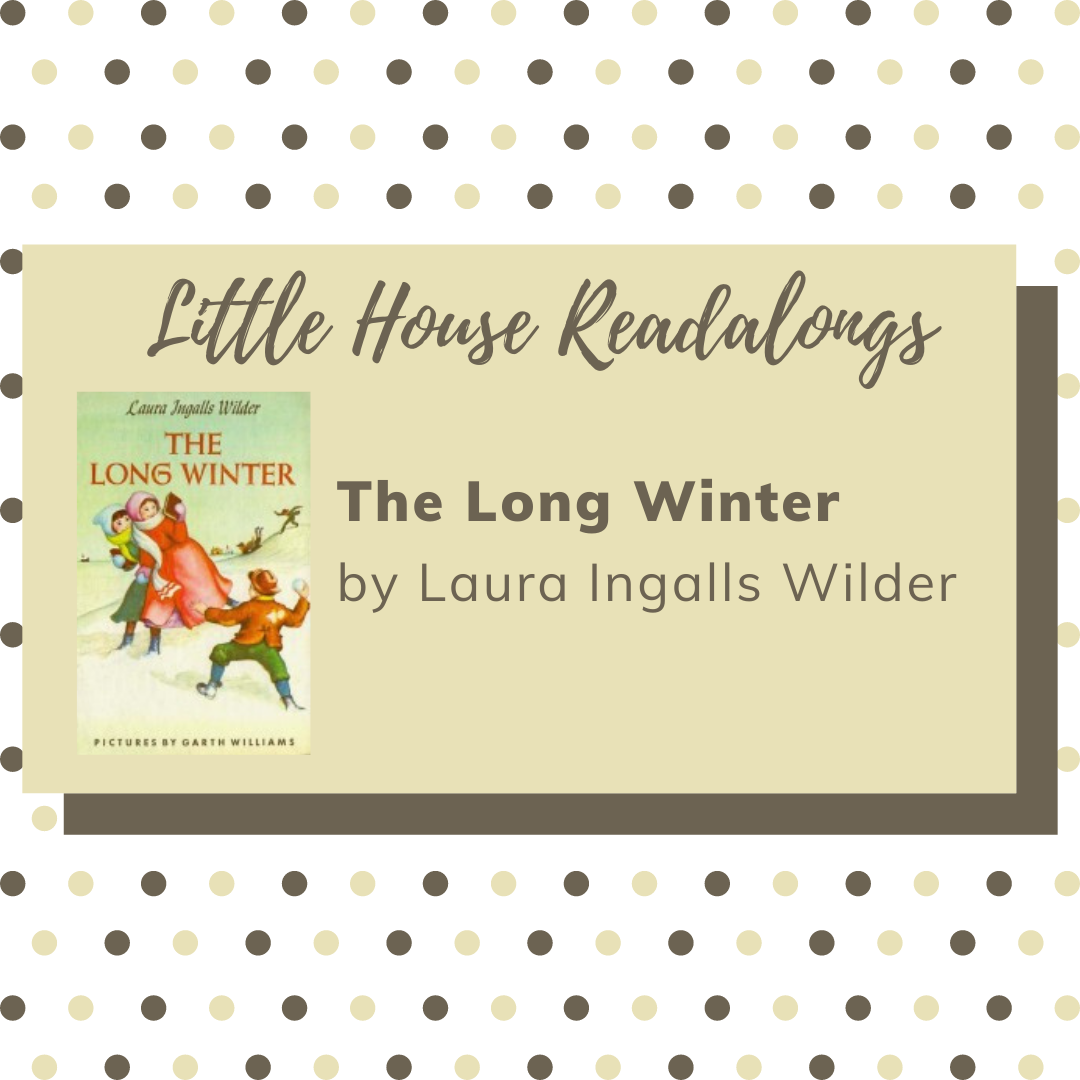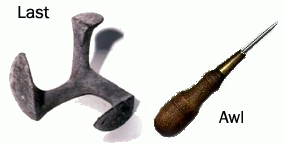
Guest post by Laura McLemore
This is a relatively short chapter and serves as bit of reprieve from the tension of the story. In this chapter, the blizzard of the previous days has subsided. Laura is awakened suddenly. She lies in her bed listening and realizes that she was startled awake by the silence. There is no howling wind, no scouring of snow and ice hitting the house. The sun was shining. Downstairs, Ma and Pa are beginning their day. Ma comments that the blizzard was over and that it only lasted two days. She contradicts Pa (Ma!) by saying, “It may be that your hard winter may not prove to be so hard after all”. But with a smile like sunshine and a happy voice, we can forgive Ma for criticizing Pa.
Ma is sure there will be school on such a bright day and she hurries Laura and Carrie back upstairs to get ready. The girls come back to the cozy kitchen to wash their faces and fix their braids. The kitchen is a merry place. When Pa comes in he must notice that Laura is scrubbing her face because he comments that Old Sol had his face well washed by the snow. Ma’s breakfast makes me hungry. Hash browns, cherry preserves, and toast, lots of carbs to keep the body warm. Even Ma gets in on the good humor. She said that the frozen bit of butter is “what the cobbler threw at his wife”. The big girls and Ma laughed but poor Carrie and Grace didn’t understand.  Mary said, “No, that was his awl”. The puns and laughter continue with Laura adding, “Oh no! It was his last.” Ma cautioned the girls because they were laughing too much at the table. The merriment was over but the coziness of breakfast and the good cheer continued when Ma told Laura and Carrie to run along to school and that she would do their chores.
Mary said, “No, that was his awl”. The puns and laughter continue with Laura adding, “Oh no! It was his last.” Ma cautioned the girls because they were laughing too much at the table. The merriment was over but the coziness of breakfast and the good cheer continued when Ma told Laura and Carrie to run along to school and that she would do their chores.
The snow on Main Street sparkles in the sun. There is a ridge of snow running down the street that was taller than Laura, meaning it was about five feet tall as we know Laura was only four feet, eight inches or so. Later in the winter the snow reached the second stories of many buildings but at this point, it was still navigable. Laura and Carrie make their way over the drifts to the school. Mary Power and Minnie are standing in the winter sun watching Cap and the Wilmarth boys sliding on the ice. Apparently, Mary Power and Minnie made it safely through the storm on Saturday.
At recess Laura laments that she isn’t a boy as she would like to run and play with the boys. She states, “I don’t think it’s any fun being a young lady.” Mary Power, who is so Ma-like, says that they can’t help growing up. Minnie Power cryptically turns the conversation toward her fear of being caught in a blizzard. She asks the girls what they would do. Mary says she would keep walking. Laura stoically says that she wouldn’t get caught in one.
Lunch time arrives and Laura and Carrie scramble over the drifts to find steaming hot potatoes and fluffy biscuits on the table. Just as Ma is lamenting that she wished she had some butter for them, a knock sounds at the door. Carrie runs to open it and there at the door is a big furry bear who looked a lot like Mr. Boast. Mrs. Boast had stayed home to do the laundry as she couldn’t waste a bright, sunny, blizzard free day. However she had sent…Butter! Mr. Boast says he’s in town to get the news and supplies. I believe that Laura uses a little foreshadowing here as the conversation turns to whether there are any shortages at the store. Pa says, not that he knows of, except for meat. We of course know that there will be shortages later.
Laura and Carrie joyously return to school and Laura is happy that all the weekdays would now be school days (or was it because Cap Garland’s smile included all of them?) That night, Laura dreams that Pa is playing his wild storm music again. She awakes and knows that it wasn’t Pa’s fiddle that was making the wild music. It was a blizzard.
———
Update: Please read the comments below about the cobbler’s last. A new picture has been included. Thank you, Dennis, for this information.


Comments9
I must read the last chapter again, this one seems startling, definitely a reprieve.
I used to be fascinated about ground cherries, I hope that is what the chapter says, wild ground cherries. In Australia my Mum grew cape gooseberries in the 60s and 70s, that is what we call them here. They came up by themselves. I love them.
http://en.wikipedia.org/wiki/Physalis
Just a quick note, not on the chapter but the image: The iron tool pictured is not a last – but many antique and flea market dealers call them that – it is a shoe anvil or “cobbler’s foot.” It is used only for repair; and this type was designed for repair using nails. A shoe maker’s last is a full foot shaped form used to mold the leather pieces to the proper size and style. They are usually hard wood, mostly maple in this country. The anvil as one can see is not a complete foot shape and could not be used as a “last.” I guess if I was the shoe maker’s wife I might like only slightly more having a wooden last tossed at me over a cast iron anvil.
Thanks for that information, Dennis! Do you have a picture of a last that we could replace the image with?
I do, but I need a lesson on how to post it. I tried to do so with a 1870s period inmage of a “section car” or hand car for an earlier chapter and I couldn’t “cut and paste” it in the message area. I’m so lame!
Dennis, anytime you would like to add any images, feel free to send them to beyondlittlehouse@gmail.com and we’d be happy to post them. I’m glad to see you’re reading the blog!
In Farmer Boy, the children were to be seen and not heard at the table but the Ingalls children are allowed to talk and laugh (a little) at the table. Wonder why they were such extreme opposites.
I think the Wilder family was always portrayed as being more the old fashioned, strict, New England household. (Even though they did live just over the state line from Vermont.) They were more religious and more caerful with money. Even their speech patterns were different.
Life on the frontier was, by necessity, more casual, and family life was much more relaxed. (And, despite being clearly MUCH less well off, Pa and Ma were more generous with their money.)
I think that the time periods too were beginning to ‘lighten up’ in other words 15 years later kids could laugh a little more than before. You have to use historical imagination a lot here 🙂
In one of the earlier LH books, there is mention of children should be seen and not heard. I just can’t remember which one, and they’re packed, getting ready for moving soon. Perhaps the saying is for very younger children, who are more naturally active and boisterous; older children often are more capable (if taught) to be more calm at table. That’s one theory.
Comments are closed.